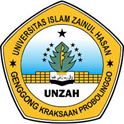Iddah in a Philosophical, Normative. Juridical, Psychological, Sociological, and Economic Perpective
DOI:
https://doi.org/10.5281/zenodo.17393323Keywords:
iddah, philosophical, normative, juridical, psychological, sociological, economical, perspectiveAbstract
Iddah has relevance to human life, including psychological, sociological, economic, and philosophical. The method used in this research is a descriptive-analytical method, with the primary approach being normative juridical. The Review of some of these elements includes: a review of the philosophy of iddah is to see the cleanliness of a wife's womb so that there is no mixing of seeds between two people. This aims to clarify the lineage of a child. Normative and juridical reviews of iddah have been regulated in the Qur'an, Hadith, and the Compilation of Islamic Law. The psychological Review of the iddah period gives the husband time to consider his household, whether it will be disbanded forever or rebuilt by preparing a stronger mentality to build a better household. Sociological Review, women are limited in socializing with people outside the home, especially with men who are not mahram. Meanwhile, from an economic perspective, a woman in the iddah has the right to earn a living from her husband. He is also entitled to a decent place to live. The husband is obliged to settle pending dowry cases or other obligations related to the economy, such as childcare costs, expenses during pregnancy, and expenses needed in daily life
Downloads
References
Achyar, G., & Hasanah, H. (2019). Penyimpangan ‘iddah perceraian pada masyarakat gunung meriah aceh singkil (Analisis menurut perspektif Islam). Samarah, 3(2). https://doi.org/10.22373/sjhk.v3i2.4395
Al Amin, M. N. K. (2016). Iddah Bagi SuamI Karena Cerai mati dalam Kajian Filsafat Hukum Islam. MUKADDIMAH: Jurnal Studi Islam, 1(1), 97–118.
Ali, M., Sariroh, S., & Rumawi. (2021). Social Construction of Widow’s Marital Rights without Finishing Waiting Period (Idah) in Indonesia. Studia Iuridica Lublinensia, 30(5), 13–28. https://doi.org/10.17951/sil.2021.30.5.13-28
Asari, K. N., Makhtar, M., Hamid, N. A., Asuhaimi, A. F., & Pauzai, N. A. (2017). Iddah maintenance: Concept, issues and methods of enforcement. Pertanika Journal of Social Sciences and Humanities, 25(October), 145–152.
Azwir, A., Pagar, P., & Nasution, M. S. A. (2022). The Legality of Divorce in Aceh: A Study of Divorce Practices Out of Religious Courts. Al-Manahij: Jurnal Kajian Hukum Islam, 16(2), 165–180. https://doi.org/10.24090/mnh.v16i2.6389
Azzulfa, F. A., & Cahya A., A. R. (2021). Masa Iddah Suami Istri Pasca Perceraian. Al-Mizan, 17(1). https://doi.org/10.30603/am.v17i1.1959
Burhanuddin, & Sholihin, M. (2020). Konsep iddah dalam fiqih islam ( Studi Analisis Gender ). Al-Hikmah: Jurnal Studi Islam, 1(4), 54–70. https://doi.org/https://doi.org/10.51806/al-hikmah.v1i4.4318
Fatriyani, N. (2020). Kontrinusi Hukum Islam Tentang Menentukan Masa Iddah Dalam Undang-Undang Perkawinan Di Indonesia. JOM Fakultas Hukum Universitas Riau, VII(1), 2.
Fitriani, R., & Aziz, A. (2019). Tinjauan hukum Islam tentang pembebanan mut’ah dan nafkah iddah terhadap suami yang murtad (Studi kasus putusan pengadilan agama nganjuk no: 1830/Pdt.G/2016/PA.Ngj). Samarah, 3(2), 365–377. https://doi.org/10.22373/sjhk.v3i2.5242
Hamim, M. (2017). Penerapan Masa Iddah (Studi Kasus Kawasan Pantura). Jurnal Kajian Hukum Islam, 10(4), 51–58.
Hayati, I. N. (2018). Hikmah Dilarangnya Poliandri (Kajian Normatif Yuridis, Psikologis dan Sosiologis). Qolamuna, 3, 181–206.
Hikmatiar, E. (2016). Nafkah Iddah Pada Perkara Cerai Gugat. SALAM: Jurnal Sosial Dan Budaya Syar’i, 3(2), 131–172. https://doi.org/10.15408/sjsbs.v3i1.3316
Iskandar, A., & Zaeni, A. (2022). Ikrar Talak di Pengadilan Perspektif Ma’anil Hadis. Al-Tadabbur: Jurnal Ilmu Al-Qur’an Dan Tafsir, 7(01). https://doi.org/10.30868/at.v7i01.2495
Jamaluddin, Nanda Amalia, & Laila M. Rasyid. (2015). Women and Divorce: Legal Justice Study of Societal and Judicial Perspective Toward Unrecorded Divorce in Aceh, Indonesia. US-China Law Review, 12(8). https://doi.org/10.17265/1548-6605/2015.08.002
Jamhuri, & Juliara, I. (2017). Penggabungan iddah wanita hamil dan kematian suami (Analisis terhadap pendapat mazhab syafi’i). Samarah, 1(1), 226–247. https://doi.org/10.22373/sjhk.v1i1.1581
Kasim, F. M., Nurdin, A., & Muthalib, S. A. (n.d.). The Protection of Women and Children Post-Divorce in Sharia Courts in Aceh : A Sociological Perspective. 22(1), 411–432.
Kusmidi, H. (2018). Reaktualisasi Konsep Iddah Dalam Pernikahan. Jurnal Ilmiah Mizani: Wacana Hukum, Ekonomi Dan Keagamaan, 4(1), 33–42. https://doi.org/10.29300/mzn.v4i1.1007
Munim, A. (2020). Post-Divorce Custody of Children According to Positive and Islamic Laws. Law Development Journal, 2(1), 20. https://doi.org/10.30659/ldj.2.1.20-27
Musyafah, A. A. (2020). Perkawinan Dalam Perspektif Filosofis Hukum Islam. Crepido, 2(2), 111–122. https://doi.org/10.14710/crepido.2.2.111-122
Nimah, Z. (2018). The Violation on Women’s Rights in the Unilateral Divorce in Sasak Community From A Feminist Legal Theory. AL-IHKAM: Jurnal Hukum & Pranata Sosial, 13(1), 25. https://doi.org/10.19105/al-ihkam.v13i1.1482
Ria, R. A. (2018). “Iddah (Tinjauan Fiqih Keluarga Muslim).” Jurnal Al-Mau’izhah, 1(1), 13.
Romadoni, R. M. (2019). The Iddah Period as a Reason for Cancellation of Marriage. Lentera Hukum, 6(2), 233. https://doi.org/10.19184/ejlh.v6i2.11253
Sabri, A., Jamal, A., & Nasir, M. (2019). Socio-Economic And Divorce in Aceh Province. MIMBAR : Jurnal Sosial Dan Pembangunan, 35(2), 383–391. https://doi.org/10.29313/mimbar.v35i2.5021
Sriwulan, H. (2020). Reformulation of a Fair Iddah Alimony Maintenance Arrangements in Indonesia’s Muslim Family Law. Journal of Law, Policy and Globalization, 104, 80–86. https://doi.org/10.7176/jlpg/104-11
Suryani, S. (2017). Rada’Ah Dalam Perspektif Filosofis, Normatif, Yuridis, Psikologis, Sosiologis, Ekonomis. Jurnal Ilmiah Syi’ar, 17(2), 93. https://doi.org/10.29300/syr.v17i2.899
Susylawati, E. (2019). The Acceptability of Active Judge Principle in Divorce Talak Cases of Religious Courts at Madura to Assure the Wife s Rights. Al-Ihkam: Jurnal Hukum Dan Pranata Sosial, 14(2), 267–282. https://doi.org/10.19105/al-lhkam.v14i2.2435
Tasdiq, N. (2020). Implementasi Nafkah Iddah Pada Pengadilan Agama Watampone. AL-SYAKHSHIYYAH Jurnal Hukum Keluarga Islam Dan Kemanusiaan, 2(1), 64–74. https://doi.org/10.35673/as-hki.v2i1.814
Turatmiyah, S., Syaifuddin, M., Yahanan, A., Febrian, F., & Novera, A. (2019). Does Judge Has Ex Officio Rights In determining Mut’ah and Iddah? Sriwijaya Law Review, 3(2), 187. https://doi.org/10.28946/slrev.vol3.iss2.249.pp187-198
Downloads
Published
How to Cite
Issue
Section
License
Copyright (c) 2022 Yusmita

This work is licensed under a Creative Commons Attribution-ShareAlike 4.0 International License.















